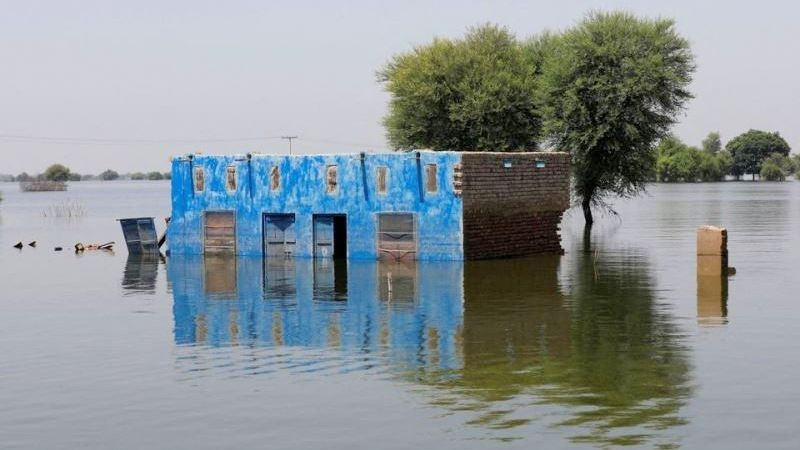A recent IMF report studying more than 60 countries, on the list of weak and conflict-affected countries, shows that although climate change is not the cause of conflict, it aggravates inherent instability. The IMF predicts that climate change could push an additional 50 million people in underdeveloped countries into hunger by 2060. This is also the cause of a wave of migration, to avoid the impacts of climate change. The International Organisation for Migration (IOM) stressed, that the world “has officially entered the era of climate migration”.
Russian climatologist Alexei Kokorin once warned that if climate change takes place according to the worst scenario, nearly 3 billion people will have to migrate due to climate, by the end of this century. Experiencing serious impacts from droughts, floods and extreme heat to rising sea levels, African countries have long been among the most vulnerable to climate change. According to the Norwegian Refugee Council's Internal Migration Monitoring Center, Africa will record more than 7.5 million migrations in 2022 alone, due to natural disasters.
By the end of 2022, at least 1.85 million children in sub-Saharan Africa have been displaced within the country, due to climate disasters, according to the humanitarian organisation, Save the Children. Notably, this number has nearly doubled since the end of 2021. The organisation also noted that when children lose their homes, they lose almost everything, including opportunities to access health care, education, food and safety.
The above reality proves that poor countries need more funds to protect themselves from the impacts of extreme weather, helping to prevent people from being forced to flee elsewhere. Financial issues have long been a major and controversial challenge in the fight against global climate change. African countries have only received 12% of the financial resources needed to cope with the severe consequences of climate change.
According to Mari Pangestu, a former official of the World Bank (WB), developing countries are estimated to need between 1 trillion USD to 3 trillion USD, each year, to respond to climate change. The lack of financial resources makes it difficult for these countries to reduce their carbon emissions and switch to clean energy.
While efforts to reduce emissions have not reached the desired level, the energy crisis caused by the conflict in Ukraine has affected the green transition roadmap of many countries, leading to the "vicious cycle" of increasing greenhouse gas emissions in Africa and Asia.
The US research group Global Energy Monitor said, that the world’s net coal power output continues to increase and many new factories in Asia and the world will have to pay a heavy price if they cannot stop using coal. According to a report by the International Energy Agency (IEA), India's coal demand has grown by 8% by 2022. Germany, one of the leading countries in decarbonisation efforts, must also increase coal power production, as the energy situation became serious, due to gas supply disruptions from Russia.
The IOM's Deputy Regional Director for the East and Horn of Africa, Justin McDermott, stressed that addressing the climate crisis will contribute to stabilising human migration and promoting peace and ecological growth. The consequences of climate change are creeping into every corner of human life. It is time for the whole world to take strong action to equitably share climate responsibility and accelerate the green transition.
















